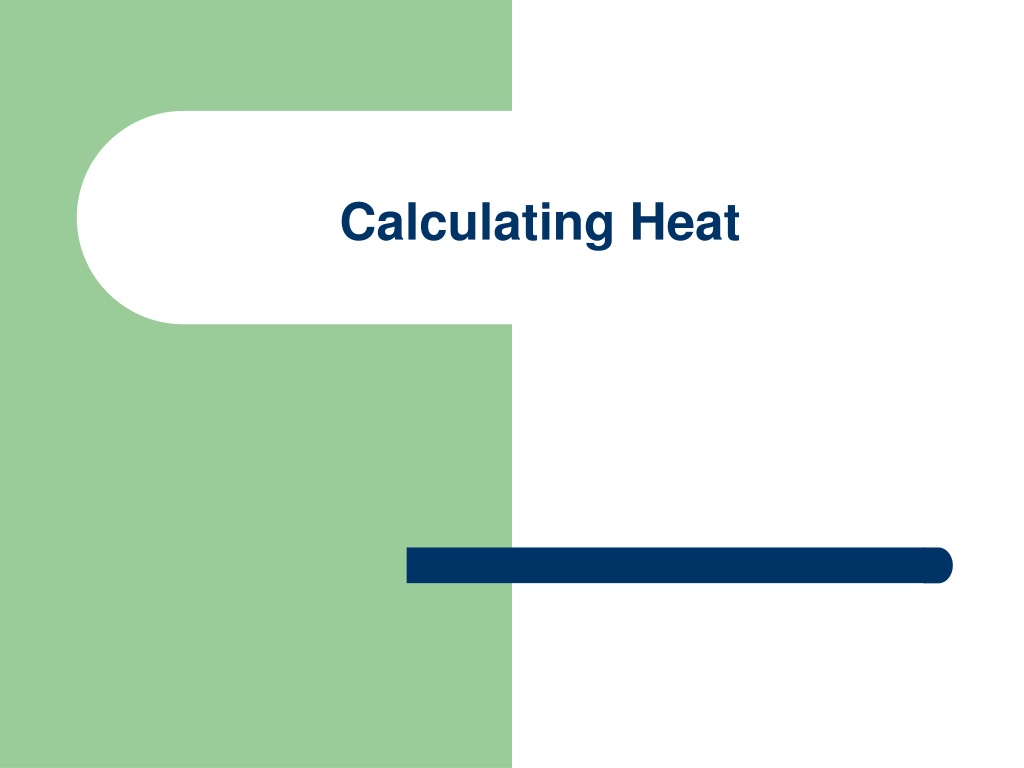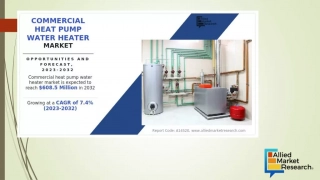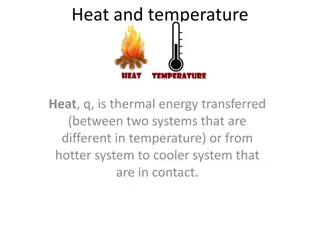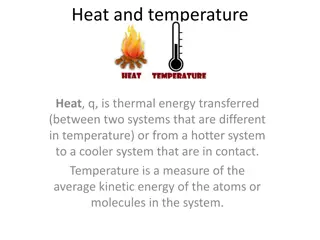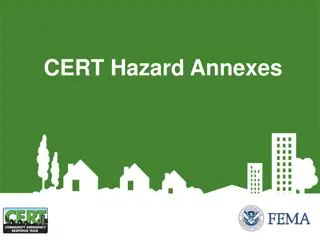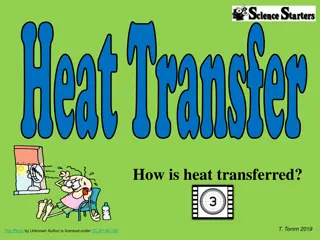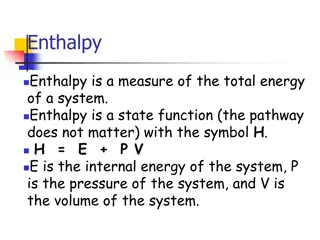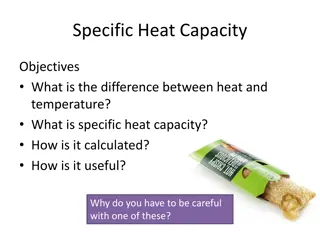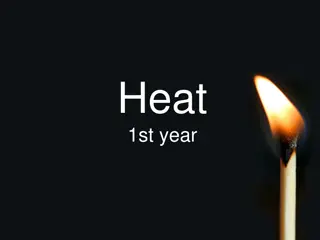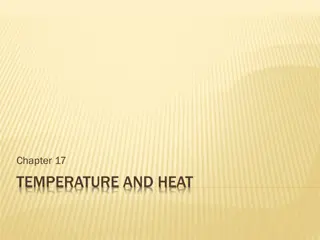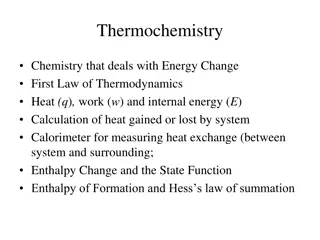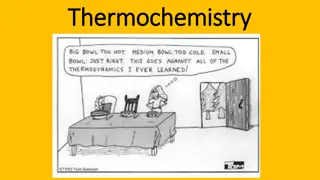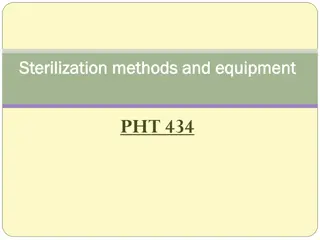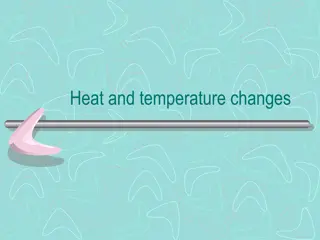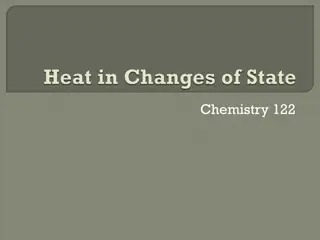Understanding Heat and Energy Changes in Chemistry
Explore the concepts of heat, specific heat, phase change, and energy calculations in chemistry. Learn how to calculate heat, specific heat values for different substances, and the energy needed for phase changes like vaporization and fusion. Practice problems and examples are provided to enhance understanding.
Download Presentation

Please find below an Image/Link to download the presentation.
The content on the website is provided AS IS for your information and personal use only. It may not be sold, licensed, or shared on other websites without obtaining consent from the author. Download presentation by click this link. If you encounter any issues during the download, it is possible that the publisher has removed the file from their server.
E N D
Presentation Transcript
Specific Heat Amount of heat energy needed to raise the temp of 1 ml of a substance 1 C For water the specific heat is 4.19 J/g C, but it is differenct for different substances It takes 4.19 J to raise the temp of 1 g of water 1 C Every substance has a different specific heat
Calculating Heat When Substance in One Phase Heat released or absorbed can be calculated by multiplying three factors Heat = specific heat x mass x temp change q = c x m x t
Practice The specific heat of water is 4.19 J/ g C. How much heat is needed to warm 350g of water from 25 C to 75 C? If 178 J of heat is needed to increase the temperature of a 20g piece of copper metal from 25 C to 48 C, what is the specific heat of copper?
Heat and Phase Change (Evaporation) Heat of vaporization ( HVAP) energy required to change one gram of a substance from liquid to gas. For water 2260J/g Q = HVAPm
Practice The heat of vaporization of water is 2260J/g. How much heat must be supplied to evaporate 50g of water? How much heat is required to evaporate 150.g of a substance at its boiling point if it has a Hvap= 987 J/g?
Energy and Phase Change Heat of fusion ( Hfus) energy required to change one gram of a substance from solid to liquid. For water 340 J/g Q = Hfusm
Examples The heat of fusion of ice at 0 C is 340J/g. How much heat is needed to change 75g of ice at 0 C to a liquid at the same temperature? The heat of fusion of water at 0 C is 340J/g. How much heat is released when 250g of water changes to ice at 0 C?
Practice How much heat is needed to change 100g of water at 50 C to steam at 120 C? The specific heat of water is 4.19 J/g C, the specific heat of steam is 1.7 J/g C, and the heat of vaporization of water is 2260 J/g. How much heat must be released as 50g of water at 25 C to ice at -10 C? The specific heat of water is 4.19 J/g C, the specific heat of ice is 2.1 J/g C, and the heat of fusion fro water is 340 J/g.
